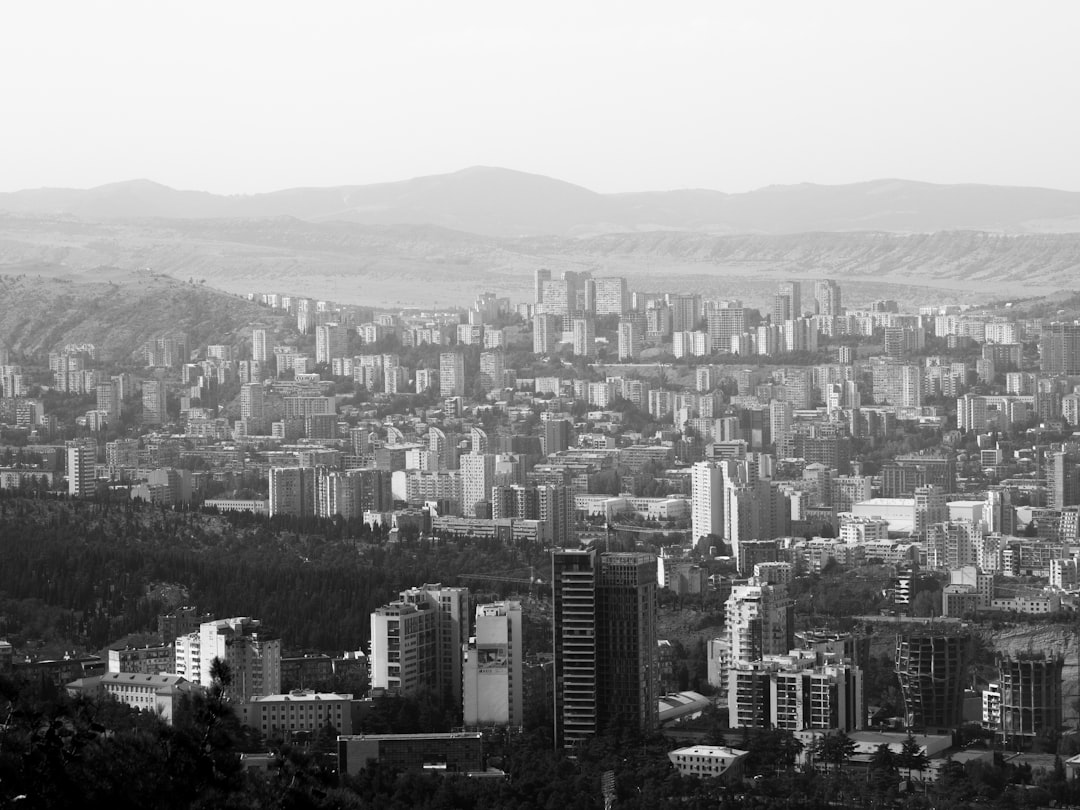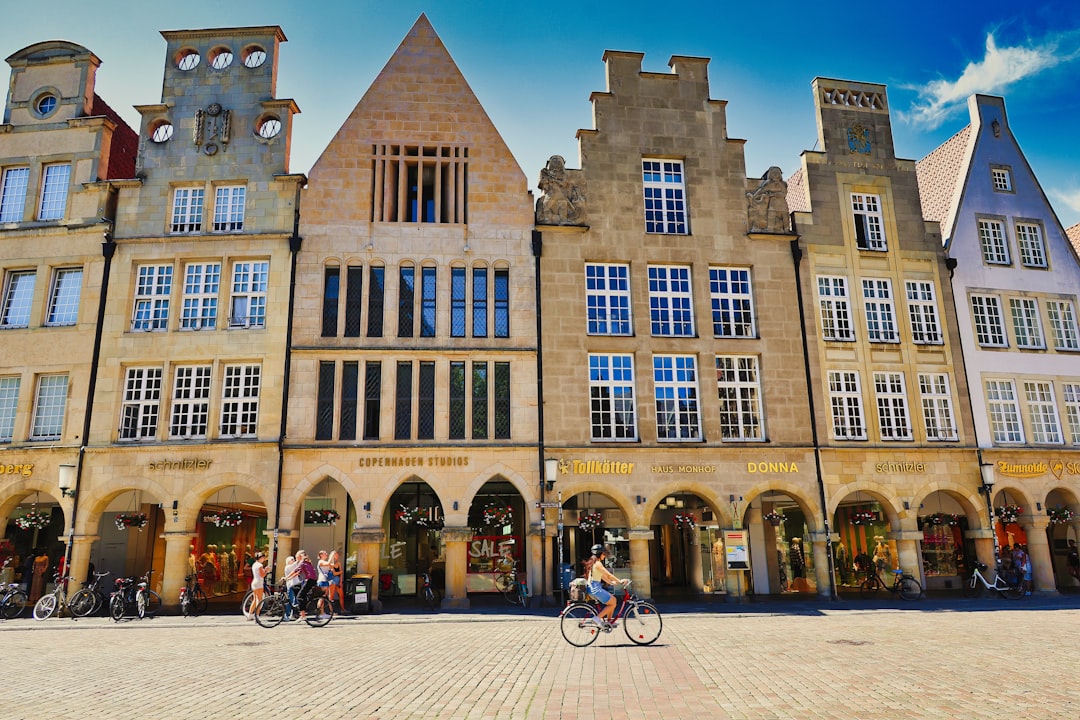How Much Does Bali Really Cost for Remote Workers

Introduction
Bali has become a magnet for remote workers looking for sunshine, surf, and a vibrant cultural scene. The island’s reputation for affordable living is real, but the actual cost can vary dramatically depending on where you stay, how you work, and the lifestyle you choose. This guide breaks down the major expense categories, offers realistic monthly budget examples, and highlights hidden costs that often catch newcomers off guard. By the end you will have a clear picture of how much Bali really costs for a remote worker and be able to plan a budget that matches your goals.
Why Cost Matters for Digital Nomads
Remote work gives you the freedom to choose your base, but that freedom comes with responsibility. Knowing the true cost of living helps you:
- Choose the right neighborhood without sacrificing safety or convenience.
- Pick a coworking space that fits your workflow and budget.
- Avoid surprise expenses that could eat into your savings or project income.
- Set realistic expectations for leisure, travel, and savings while staying on the island for months at a time.
Major Expense Categories
Below is a quick snapshot of the typical cost ranges you will encounter in Bali. All figures are in US dollars and represent average monthly expenses for a single remote worker.
| Category | Budget Range | Mid‑Range | Premium |
|---|---|---|---|
| Accommodation | $200‑$400 | $400‑$800 | $800‑$1,500 |
| Coworking | $50‑$100 | $100‑$200 | $200‑$400 |
| Food (home‑cooked) | $100‑$150 | $150‑$250 | $250‑$400 |
| Food (eating out) | $150‑$250 | $250‑$400 | $400‑$600 |
| Transportation | $30‑$60 | $60‑$120 | $120‑$200 |
| Utilities & Internet | $30‑$50 | $50‑$80 | $80‑$130 |
| Health & Insurance | $30‑$60 | $60‑$120 | $120‑$250 |
| Leisure & Activities | $50‑$100 | $100‑$200 | $200‑$400 |
| Visa & Administration | $30‑$60 | $60‑$120 | $120‑$200 |
| Total | $770‑$1,250 | $1,380‑$2,380 | $2,660‑$4,800 |
These ranges give you a starting point, but the following sections dive deeper into each line item so you can fine‑tune your own budget.
Accommodation
Types of Housing
- Guesthouses & Homestays – Small rooms in locally run houses. Ideal for short stays and tight budgets. Prices usually include basic utilities and Wi‑Fi.
- Villas & Apartments – Private units with more space, often with a pool and kitchen. Popular among longer‑term nomads who want a home‑like feel.
- Co‑Living Spaces – Shared houses that combine accommodation with community events. Usually include cleaning and sometimes a coworking desk.
Popular Areas
| Area | Vibe | Typical Monthly Rent (1‑bedroom) |
|---|---|---|
| Canggu | Hip, surf, cafes | $400‑$800 |
| Ubud | Jungle, yoga, arts | $300‑$600 |
| Seminyak | Upscale, nightlife | $600‑$1,200 |
| Sanur | Family‑friendly, beach | $350‑$700 |
| Kerobokan | Central, quieter | $300‑$550 |
Cost‑Saving Tips
- Negotiate – Many landlords are willing to lower rent for a 3‑month or 6‑month commitment.
- Stay outside the main tourist belts – A short motorbike ride can save $100‑$200 per month.
- Consider a shared villa – Splitting a 2‑bedroom villa with another nomad can bring costs down to $300‑$500 for a private room.
Utilities & Internet
Most mid‑range villas include a basic internet package (10‑30 Mbps) in the rent. If you need higher speed for video calls or large file transfers, expect an extra $15‑$30 per month for a dedicated line. Electricity is billed based on usage; air‑conditioning for several hours a day typically adds $20‑$40 to the monthly bill.
Coworking Spaces
Why Coworking Matters
A reliable internet connection, ergonomic chair, and professional environment can boost productivity. Coworking also offers networking opportunities, community events, and occasional workshops on topics ranging from SEO to yoga.
Popular Coworking Hubs
| Space | Location | Highlights | Price (Monthly) |
|---|---|---|---|
| Dojo Bali | Canggu | Strong expat community, fast internet, rooftop lounge | $150‑$250 |
| Hubud | Ubud | Jungle setting, focus on sustainability, regular talks | $120‑$180 |
| Outpost | Canggu & Ubud | Multiple locations, 24/7 access, mail service | $130‑$200 |
| Biliq | Seminyak | Central, modern design, free coffee | $100‑$150 |
| Kosta House | Sanur | Beach vibe, small community, yoga classes | $80‑$120 |
Flexible Options
- Day Passes – $5‑$12 per day, good for occasional use.
- Hot Desk – Shared desk in a common area, cheapest monthly option.
- Dedicated Desk – Your own desk, often with a lockable drawer.
If you travel between towns, consider a “global” membership that lets you access partner spaces across Bali for a flat fee of $250‑$300 per month.
Food
Cooking at Home
Bali’s local markets are filled with fresh produce, rice, and spices at bargain prices. A typical grocery basket for one person (rice, vegetables, eggs, chicken, tofu, fruit) costs $30‑$50 per week.
- Rice – $0.80 per kilogram.
- Eggs – $1.20 per dozen.
- Chicken breast – $3.50 per kilogram.
- Local vegetables – $0.80‑$1.50 per kilogram.
If you cook most meals, a monthly food budget of $150‑$250 is realistic.
Eating Out
Balinese warungs (small family‑run eateries) serve nasi goreng, mie goreng, satay, and fresh fish for $1.50‑$4 per plate. Mid‑range restaurants, especially in Canggu and Seminyak, charge $5‑$12 for a main dish.
- Warung meal – $2‑$4.
- Cafe brunch – $6‑$10.
- Fine dining – $15‑$30 per person.
A mix of home‑cooked meals and regular dining out brings the average monthly food cost to $250‑$400.
Dietary Considerations
- Vegetarian/Vegan – Abundant fresh produce and tofu make plant‑based eating cheap, $150‑$200 per month if cooking at home.
- Gluten‑free – Imported gluten‑free products are pricey; budget $30‑$50 extra if you rely on imported brands.
Transportation
Getting Around
- Motorbike – The most common way to navigate Bali. Rental prices start at $45 per month for a basic scooter, $70‑$100 for a newer model. Fuel is $1.10 per liter, and a typical daily commute uses 2‑3 liters.
- Car Rental – $300‑$500 per month for a compact car, plus fuel. Not necessary unless you travel frequently with a group.
- Ride‑hailing – Gojek and Grab are ubiquitous. Short rides cost $1‑$3, longer trips $5‑$15. Budget $30‑$60 per month if you use them occasionally.
Parking & Insurance
Most guesthouses provide free motorbike parking. If you rent a motorbike, consider a basic third‑party insurance policy for $10‑$15 per month; it covers damage to third parties but not your own bike.
Health & Insurance
Local Healthcare
Bali has several reputable hospitals and clinics in Denpasar, Kuta, and Ubud. Public hospitals are inexpensive but often have language barriers. Private international clinics charge $30‑$80 for a standard consultation.
Health Insurance
A comprehensive travel or expatriate health plan is essential. Typical monthly premiums:
- Basic coverage – $30‑$60 (covers emergencies and hospitalisation).
- Mid‑range plan – $60‑$120 (includes outpatient visits, dental, and limited mental health).
- Premium plan – $120‑$250 (covers extensive medical tourism, evacuation, and family add‑ons).
Wellness Extras
- Yoga classes – $8‑$15 per session, or $80‑$120 for a monthly pass.
- Gym memberships – $30‑$60 per month at a decent gym.
Leisure & Activities
Beach and Nature
- Surfboard rental – $10‑$15 per day, $150‑$200 per month for unlimited access.
- Snorkeling trips – $30‑$50 per day, includes equipment and guide.
- Hiking (Mount Batur, waterfalls) – Guided tours $35‑$60 per person.
Cultural Experiences
- Balinese dance performance – $10‑$20 per ticket.
- Cooking class – $30‑$45 for a 3‑hour session.
- Art workshops (painting, batik) – $20‑$40 per class.
Nightlife
- Bars & clubs – $5‑$15 for a drink, cover charges $5‑$10.
If you allocate $100‑$200 per month for leisure, you can enjoy a balanced mix of active, cultural, and social experiences without overspending.
Visa & Administration
Visa Options for Remote Workers
- Social‑Cultural Visa (B‑211) – Initially 60 days, extendable up to 180 days with four 30‑day extensions. Cost: $50‑$70 for the initial visa, $30‑$50 per extension.
- Visit Visa (Tourist Visa) – 30 days, extendable once for another 30 days. Cost: $35‑$45.
- Digital Nomad Visa (planned) – Expected to allow 12‑month stays; fees not yet published.
Visa Runs
If you need to leave the island to reset a visa, the cost of a short flight to Singapore or Kuala Lumpur is $70‑$120 round‑trip. Include transportation to the airport ($5‑$10) and a brief stay in a budget hotel ($30‑$50 per night).
Administrative Fees
- Police registration (KITAS) – $50‑$80 (if you obtain a work permit).
- SIM card & data plan – $10 for a starter SIM, $15‑$30 per month for 20‑30 GB of data.
Hidden Costs to Watch
- Electricity spikes – Air‑conditioning during the hot season can double your electricity bill.
- Water usage – Some villas charge extra for high water consumption; budget $5‑$10 extra if you shower often.
- Bank fees – International ATM withdrawals cost $3‑$5 per transaction plus a 1‑2 % currency conversion fee.
- Laundry – Self‑service laundromats $1‑$2 per load; full service $5‑$8 per item.
- Seasonal price changes – High season (July‑August, December‑January) can increase accommodation and coworking rates by 10‑20 %.
Sample Monthly Budgets
Budget‑Conscious Nomad
- Accommodation – Shared villa, private room $300
- Coworking – Hot desk $80
- Food – Mostly home‑cooked, occasional warung meals $180
- Transportation – Scooter rental $50 + fuel $15
- Utilities & Internet – Included in rent $0
- Health & Insurance – Basic plan $40
- Leisure – Yoga class $80, occasional surf $30
- Visa & Admin – Visa extension $30
- Miscellaneous – ATM fees $20, laundry $10
Total ≈ $795
Mid‑Range Comfort
- Accommodation – One‑bedroom villa $650
- Coworking – Dedicated desk $150
- Food – Mix of cooking and café brunches $300
- Transportation – Scooter $70 + fuel $20
- Utilities & Internet – Extra high‑speed internet $20
- Health & Insurance – Mid‑range plan $90
- Leisure – Surfboard rental $150, cultural tours $100
- Visa & Admin – Visa extension $45
- Miscellaneous – ATM fees $30, laundry $20
Total ≈ $1,585
Premium Lifestyle
- Accommodation – Luxury villa with pool $1,200
- Coworking – Private office $350
- Food – High‑end restaurants and organic groceries $550
- Transportation – Car rental $400 + fuel $80
- Utilities & Internet – Dedicated fiber line $100
- Health & Insurance – Premium international plan $200
- Leisure – Daily surf lessons $300, yoga studio $150, weekend getaways $200
- Visa & Admin – Visa extension $60
- Miscellaneous – ATM fees $50, laundry service $40
Total ≈ $3,390
These examples illustrate how lifestyle choices shape the overall cost. Adjust each line item to fit your personal preferences and you will arrive at a realistic monthly figure.
Tips to Stretch Your Budget
- Stay longer in one place – Landlords often lower rent after a 3‑month stay.
- Use local markets – Imported groceries can double your food bill.
- Take advantage of free coworking days – Many spaces host community events with free entry.
- Negotiate internet upgrades – Some providers will add speed for a small extra fee if you sign a longer contract.
- Combine work and travel – Plan weekend trips to nearby islands (Gili, Lombok) using the same scooter or a cheap ferry, spreading costs across multiple experiences.
Frequently Asked Questions
Q: Can I rely on the internet in remote villages?
A: Most villages have 4G coverage, but speed can be inconsistent. If you need a stable connection, choose a base in Canggu, Ubud, or Seminyak where fiber is available.
Q: Do I need a separate work visa to stay as a remote worker?
A: Currently Indonesia does not have a specific digital‑nomad visa, but the social‑cultural visa is commonly used by remote workers. Always check the latest regulations before you travel.
Q: How safe is riding a scooter as a foreigner?
A: Traffic can be chaotic, especially in busy tourist areas. Wear a helmet, avoid night riding in poorly lit streets, and consider taking a short local driving lesson to understand the flow.
Q: What is the best way to handle money transfers?
A: Use a combination of low‑fee international transfer services (Wise, Revolut) and a local bank account if you plan to stay long term. Keep some cash on hand for markets that do not accept cards.
Q: Are there coworking spaces with private phone booths for calls?
A: Yes, most mid‑range and premium spaces have sound‑proof phone booths or small meeting rooms that can be booked by the hour.
Final Thoughts
Bali offers a spectrum of living costs that can accommodate tight‑budget backpackers as well as those who prefer a luxurious, all‑inclusive experience. The key to a sustainable stay is to match your accommodation, coworking, and lifestyle choices with a realistic budget that accounts for both predictable monthly expenses and the occasional hidden cost.
By breaking down each expense category, understanding regional price variations, and planning for visa and health necessities, you can enjoy Bali’s creative energy, natural beauty, and vibrant community without financial stress. Whether you are planning a three‑month trial or a year‑long adventure, the numbers above provide a solid foundation for making an informed decision.
Happy travels and productive work from the Island of the Gods!
Random Posts

Hidden Gems for Digital Nomads Airfare Deals and Public Transport Guides
Discover secret flight hacks and easy public transport shortcuts that let digital nomads travel cheap, move like locals, and stretch every dollar while working from any city.
1 month ago

Smart Strategies for Finding Cozy CoLiving Spaces Globally
Discover proven tactics to locate comfortable co-living spots worldwide, from search tools to insider community tips, so you can secure a reliable, connected home base wherever you roam.
1 week ago

Top Strategies For Managing Projects Across Multiple Time Zones
Learn how to turn global time zone differences into a strength with proven planning, clear communication habits, smart tools, and a culture that respects each team's rhythm and goals
1 month ago

Ultimate Guide to Nomad Friendly Cities Around the World
Discover the ultimate guide to nomad-friendly cities, featuring essential criteria like fast internet, affordable living, visa options, coworking spaces, and vibrant local culture to help you pick the perfect remote-work base.
1 week ago

Top Latin American Destinations for Location Independent Professionals
Discover why Latin America is a remote work haven: vibrant culture, low cost, reliable internet, digital nomad visas and coworking hubs. Explore top cities like Medellín, Mexico City, Buenos Aires and more
1 month ago
Latest Posts

Essential Software Every Remote Professional Should Use
Master remote work with essential tools: instant messaging like Slack, high definition video calls such as Zoom, and asynchronous voice apps. Streamline communication, stay connected and boost productivity.
1 day ago

Mastering Remote Work Productivity for Digital Nomads and Freelancers
Learn proven habits, tools, and tactics that help digital nomads and freelancers stay focused, deliver quality work, and maintain a sustainable lifestyle while traveling the world.
1 day ago

Tech‑Friendly European Towns Perfect for Remote Living
Discover Europe’s best small towns where fast internet, affordable living and vibrant tech communities let you work remotely while soaking up historic charm, lakeside views or mountain air.
1 day ago